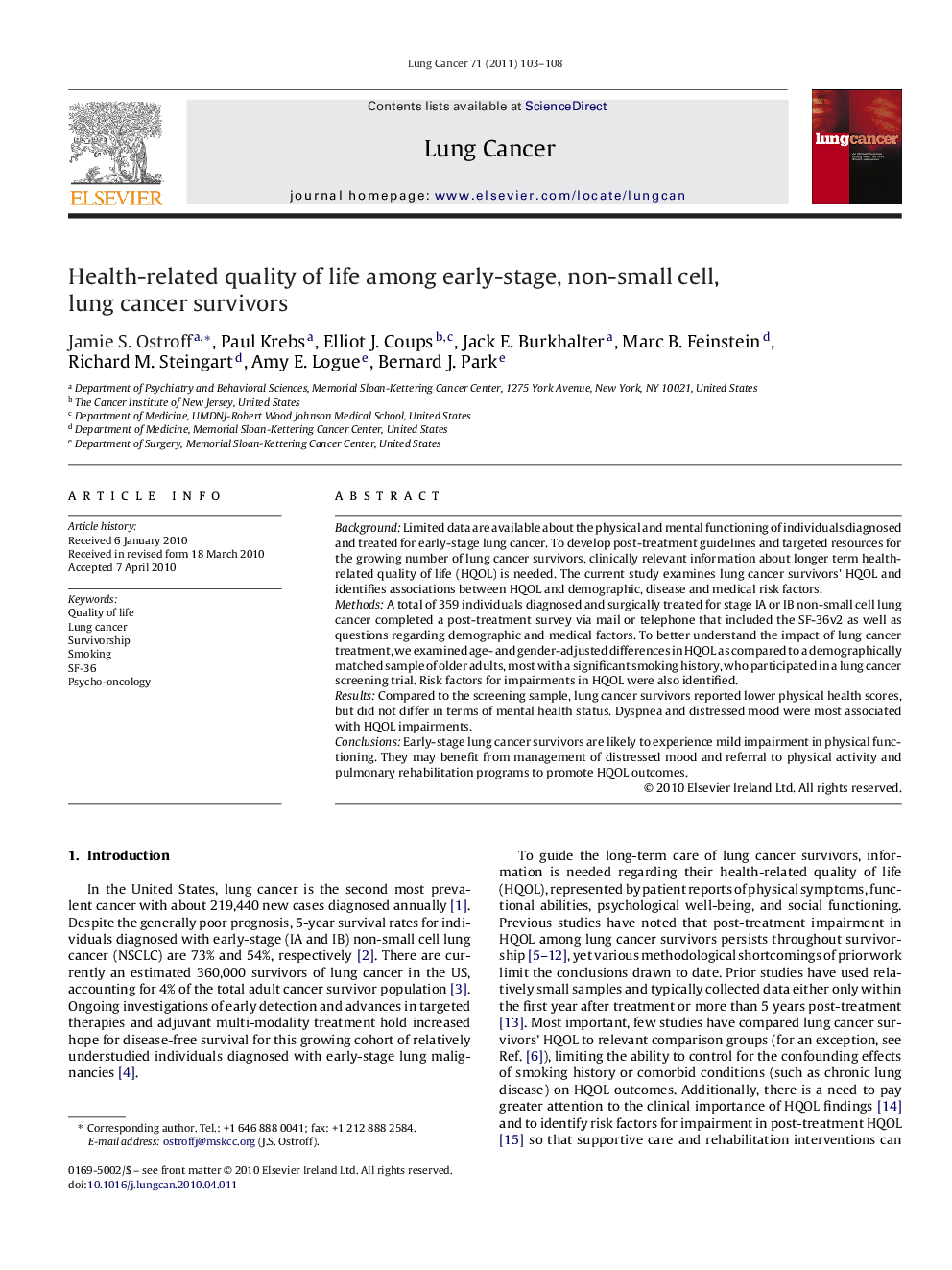| Article ID | Journal | Published Year | Pages | File Type |
|---|---|---|---|---|
| 2142207 | Lung Cancer | 2011 | 6 Pages |
BackgroundLimited data are available about the physical and mental functioning of individuals diagnosed and treated for early-stage lung cancer. To develop post-treatment guidelines and targeted resources for the growing number of lung cancer survivors, clinically relevant information about longer term health-related quality of life (HQOL) is needed. The current study examines lung cancer survivors’ HQOL and identifies associations between HQOL and demographic, disease and medical risk factors.MethodsA total of 359 individuals diagnosed and surgically treated for stage IA or IB non-small cell lung cancer completed a post-treatment survey via mail or telephone that included the SF-36v2 as well as questions regarding demographic and medical factors. To better understand the impact of lung cancer treatment, we examined age- and gender-adjusted differences in HQOL as compared to a demographically matched sample of older adults, most with a significant smoking history, who participated in a lung cancer screening trial. Risk factors for impairments in HQOL were also identified.ResultsCompared to the screening sample, lung cancer survivors reported lower physical health scores, but did not differ in terms of mental health status. Dyspnea and distressed mood were most associated with HQOL impairments.ConclusionsEarly-stage lung cancer survivors are likely to experience mild impairment in physical functioning. They may benefit from management of distressed mood and referral to physical activity and pulmonary rehabilitation programs to promote HQOL outcomes.
